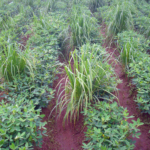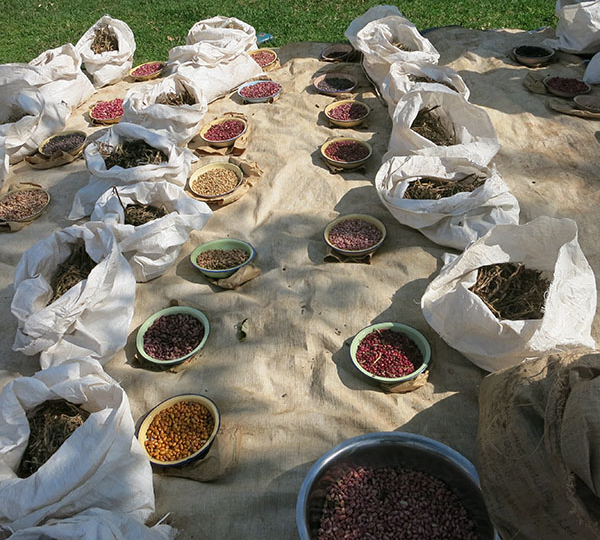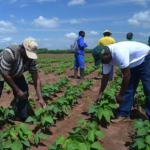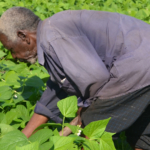


Cornell University
Ilonga Agricultural Research Institute (IARI), Action Aid Tanzania, Agriseed Technologies, Michigan State University
Malawi and Tanzania
11/2014—11/2017
The Singida Nutrition and Agroecology Project (SNAP) is investigating whether a participatory approach to testing agroecological practices and improved nutrition can lead to enhanced legume production and utilization in rural communities in Singida District, Tanzania. Previous CCRP-funded research in Malawi has shown the potential for such an approach to lead to successful development outcomes. The Legume Best Bets project has shown how the participatory development of integrated soil fertility management systems, including ‘doubled-up legumes such as pigeonpea-groundnut intercrops, can raise yields and reduce reliance of inorganic fertilizer. In addition, CCRP research in both Malawi and Tanzania has identified the potential for improved infant and child feeding practices to enhance nutritional outcomes and this project will explore how a participatory education approach can deliver the desired outcomes. SNAP is building on this earlier research and uses farmer-led research and peer education to support farmers to test agricultural practices involving legume diversification. This is supported by engagement with farming families to facilitate improved child and infant feeding, paying attention to gender and other social inequalities at the household level. The benefits of these interventions are being measured by comparing a set of indicators between villages participating in the agricultural experimentation and villages which are not participating.
Click here to read an abstract of Vicky Santoso’s dissertation, which was completed for this project, entitled, “Evaluating the Impact of a Participatory Nutrition-Sensitive Agriculture Intervention on Women’s Empowerment and Child’s Diet in Singda, Tanzania”.
Another publication connected to this project is entitled, “Household food insecurity and gender inequity is associated with high prevalence of maternal depression amongst female farmers with young children in rural Tanzania”, published in the FASEB Journal in April 2017. You can read it here.
This project aims to understand the effects of participatory, agroecological peer farmer education intervention on legume production, food security, and infant and young child feeding in Singida District, Tanzania. It seeks to do this by:Supporting legume diversification to improve soil health, while also providing food and fuelwood.Using a participatory education approach, as opposed to “top-down” delivery of information, to address farmer needs.Exploring how to reduce gender disparities by involving community members and other key stakeholders in the interventions.Address food insecurity and low dietary diversity through a combination of agricultural and nutritional interventions. Investigating the problem of sub-optimal infant and young child feeding by identifying improved feeding practices, including improving the quality of complementary foods.
Farmers in villages participating in the agricultural experimentation are expected to adopt more agroecological approaches than farmers in comparison villages. These approaches will include greater crop diversity within and between seasons and this will lead to improved soil health. The agricultural interventions will result in higher legume production through enhanced yields and an increase in the area of legumes cultivated. These changes will contribute to enhanced food security in the target area. It is also expected that improved infant growth rates, as measured by reduced stunting and fewer underweight children, will result from healthier infant and child feeding practices.



